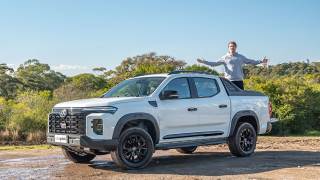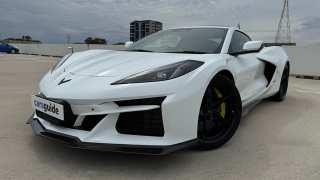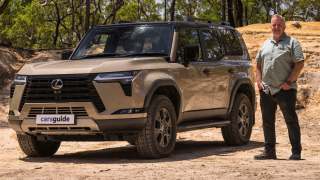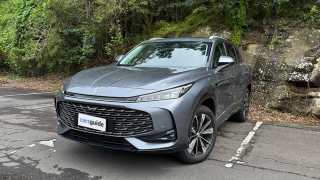Chinese made Great Wall V200 ute scores three stars for safety as sales continue to fall.
The reputation of Chinese utes has taken another hit as the latest crash tests award just three stars out of five for safety -- and sales continue to freefall after the asbestos scare of 2012.
The Great Wall Motors single-cab ute is one of the cheapest workhorse vehicles used by tradies, with a starting price of $18,990 drive-away.
But according to independent crash test authority -- the Australasian New Car Assessment Program (ANCAP) -- the Great Wall Motors single-cab trayback ute scored a “poor” three-star rating out of a possible five.
This is a modest improvement from the two-star rating scored for other Great Wall utes in 2009 and 2010, in which the airbags proved ineffective at improving the safety score.
In the latest crash test at 64km/h the Great Wall ute’s “compartment lost structural integrity, accelerator pedal movement was excessive, and steering column components were a potential source of knee injury for the driver”, said the ANCAP report, which awarded just 6 points out of 16 for the offset test.
The safety of trade vehicles has historically lagged behind that of passenger cars, even though utes are now the third-biggest vehicle category after small cars and SUVs.
However, under new Occupational Health and Safety guidelines, many companies are now enforcing a five-star policy when purchasing utility vehicles.
The Volkswagen Amarok was the first ute to be awarded a five-star safety rating in Australia, in 2011, but several other brands have followed since, including the Ford Ranger, Holden Colorado, Mazda BT-50, and certain Toyota HiLux and Isuzu D-Max models.
The Nissan Navara and Mitsubishi Triton score four stars for safety but are due to be replaced by all-new five-star models next year.
The poor safety result for the Great Wall Motors ute comes as sales figures show Chinese vehicles are no longer a threat to the established brands.
Sales of Chinese vehicles have been in freefall in the two years since 21,000 Great Wall utes and SUVs and 2250 Chery passenger cars were recalled for having engine parts containing asbestos.
At their peak in 2012, more than 12,100 Chinese vehicles were sold locally. But so far this year just 2500 Chinese vehicles have been sold, a dramatic drop of 54 per cent from the same period last year.
There are now at least seven Chinese automotive brands on sale in Australia but Great Wall and Chery are the largest; the others are yet to publish sales figures.
A spokesman for the Australian distributor of Great Wall Motors, Chery and Foton said the established Japanese car makers had come down in price, putting pressure on Chinese brands.
“The massive devaluation of the Japanese Yen … has meant that well established Japanese vehicle brands are able to be much more competitively priced in the Australian market than was the case when Great Wall launched here in mid 2009,” said spokesman Daniel Cotterill.
He said emerging brands traditionally compete on price, but that price advantage had all but evaporated over the past two years.
“Where once a Great Wall ute might have had six or seven thousand dollars of price advantage over an established Japanese brand, that is not the case at the moment in many instances,” said Cotterill.
“Currency fluctuations are cyclical and we remain optimistic that our competitive price position will return.”
The Chinese car sales downturn comes as another division of Great Wall Motors has signaled its intention to set up in Australia under the Haval brand name.
However, the all-new Haval SUV that was due in Australia this year has been delayed indefinitely after it was withdrawn from sale in China twice because of build quality concerns.















Comments